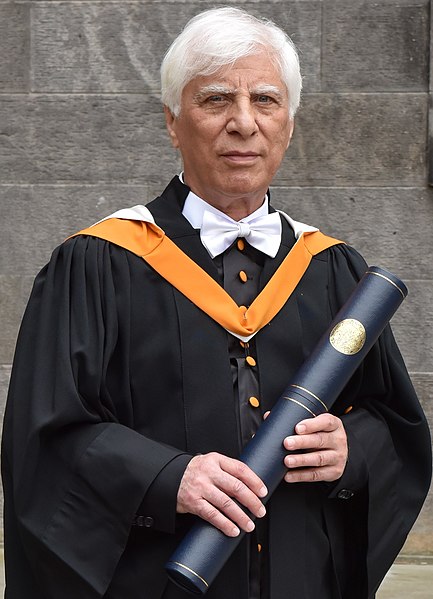Doctor of Letters also termed "Doctor of Literature" in some countries is a terminal degree in the arts, humanities and social sciences that, depending on the country, is a higher doctorate after the Doctor of Philosophy (Ph.D.) degree or equivalent to a higher doctorate, such as the Doctor of Science or Doctor of Laws (LL.D). It is awarded in many countries by universities in recognition of superior accomplishment in the Arts, Social Sciences or humanities, such as original contributions to the creative or cultural arts, or scholarship in Social Sciences and humanities and other merits. It may be conferred as an earned degree upon the completion of a regular doctoral course of study, usually including the development and defense of an original dissertation, or may be conferred as an earned higher doctorate after the submission and academic evaluation of a portfolio of sustained scholarship, publications, research, or other scientific work of the highest caliber.

Bahram Beyzai, dressed in a traditional St. Andrews black cassock, having just received a D.Litt. honoris causa, June 2017
Mark Twain (right), wearing the full-dress gown of an Oxford D.Litt. He was awarded an honorary doctorate of letters in 1907.
A Doctor of Philosophy is the most common degree at the highest academic level, awarded following a course of study and research. The degree is abbreviated PhD and sometimes, especially in the U.S., as Ph.D. It is derived from the Latin Philosophiae Doctor, pronounced as three separate letters.
A new PhD graduate from the University of Birmingham, wearing a doctor's bonnet, shakes hands with the Chancellor.
A South African PhD graduate (on right, wearing ceremonial gown)
A PhD gown at the University of Cambridge, one of the world's oldest and most prestigious universities
PhD SPbSU certificate






